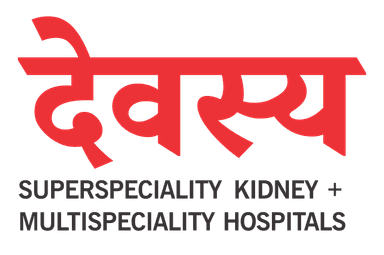Esophageal cancer Treatments & Surgery
How Devasya Hospital Helps to Cure Esophageal cancer?
Devasya Hospital can help individuals seeking treatment for Esophageal cancer, including various procedures such as Transhiatal esophagectomy, Ivor Lewis Esophagectomy and Thoracoabdominal Gastrectomy
They are known for providing best and effective treatments for Esophageal cancer and have a reputation for their expertise in this area. With a team of experienced individuals Devasya Hospital provides effective treatments for the same. Through a multidisciplinary approach, they provide a range of cutting-edge therapies that cater to each patient's unique needs.
Upon diagnosis, a team of skilled oncologists, surgeons, radiologists, and other specialists collaborate to formulate personalized treatment plans. The hospital also offers advanced radiation therapy, chemotherapy, and targeted therapies, utilizing the latest advancements in medical research and technology. Through the commitment to innovation, expertise, and compassionate care, Devasya Hospital strives to provide patients battling esophageal cancer with the most effective treatments available.
FAQs
Esophageal cancer occurs due to genetic mutations in the cells of the esophagus that lead to uncontrolled growth and the formation of malignant tumors. While the exact causes of these genetic mutations are not always fully understood, several risk factors have been identified that can increase the likelihood of developing esophageal cancer. It's often the result of a combination of factors rather than a single cause.
Diagnosing esophageal cancer typically involves a combination of medical history review, physical examination, and various diagnostic tests. The exact tests conducted can vary depending on the patient's symptoms, medical history, and the suspected type and stage of the cancer.
- Difficulty Swallowing (Dysphagia): This is often one of the earliest and most common symptoms.
- Unintended Weight Loss: As swallowing becomes difficult, it can lead to weight loss.
- Chest Pain or Pressure: This can occur when the tumor invades nearby tissues.
- Chronic Cough or Hoarseness: Tumors can affect the surrounding nerves, causing symptoms like coughing or hoarseness.
- Indigestion or Heartburn: Persistent symptoms might be a sign of acid reflux or Barrett's esophagus.
Managing the side effects of esophageal cancer treatment can greatly improve your overall well-being and quality of life during and after the treatment process. It's important to communicate openly with your healthcare team about any side effects you experience so they can provide appropriate guidance and support.
Here are some potential complications associated with esophageal cancer:
- As the tumor grows, it can obstruct the esophagus, causing difficulty in swallowing (dysphagia). This can lead to weight loss, malnutrition, and dehydration.
- Malnutrition and Weight Loss
- Pain in the chest, throat, or back. Pain management becomes important for improving quality of life.
- Difficulty swallowing can lead to food or fluids entering the airway, potentially causing pneumonia or lung infections.
- Tumors can cause bleeding, leading to symptoms such as vomiting blood or black stools.
- Coping with a cancer diagnosis, treatments, and potential changes in lifestyle can lead to emotional stress, anxiety, and depression.



